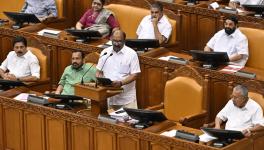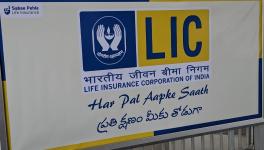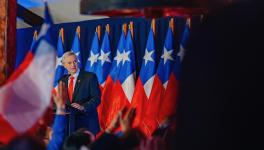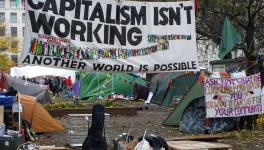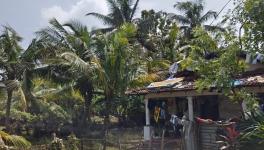In Colombia, the Pandemic is Widening Inequality in Access to Education
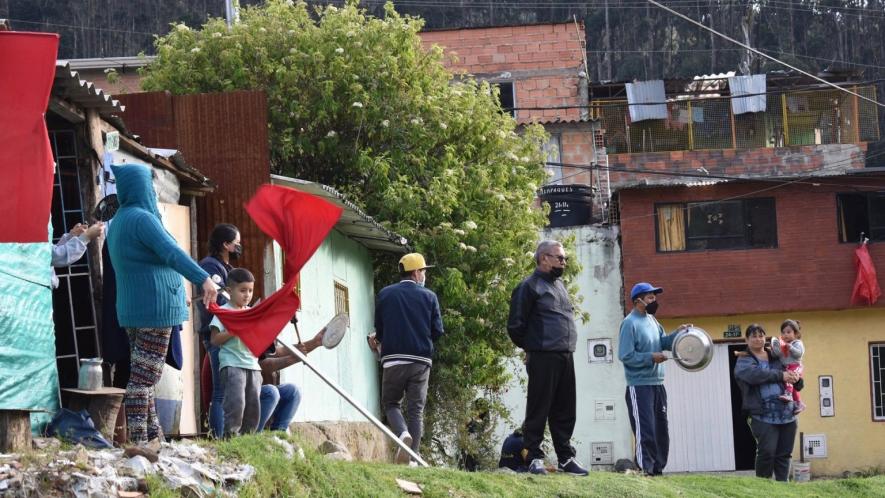
In Colombia, families that do not have access to food hang red cloths in their window. | Photo: Colombia Informa
Students across the world have been rising up to denounce the attacks on their right to education amid the pandemic. While educational centers are closed due to public health and safety concerns, the shift to online learning at all levels has meant that students who do not have access to the internet or digital tools at home are unable to access education.
In Colombia, according to a study done in March 2019 by the Ministry of Information Technology and Communications, 50% of households do not have access to the internet. The deep socio-economic inequality and the neoliberal model of education have already cemented a wide gap in access to secondary and higher education.
According to social movements in the country, the effects of the pandemic will make the fundamental right of education further out of reach for working-class youth. It will also further disadvantage them in terms of their access to public universities which is largely mediated by a standardised test called the ICFES (Colombian Institute for the Promotion of Higher Education) exam.
In light of growing inequality, educators and students have called for universal, free and public higher education and the elimination of the entrance exam in order to access public higher education. Peoples Dispatch spoke to Harold García a Colombian popular educator and secondary-school teacher, to understand the current challenges to equal access to education.
Peoples Dispatch: How has the pandemic had an impact on access to education for the working class in Colombia? And how has it affected education itself and what we understand as education?
Harold García: There has been a deep impact on education in Colombia due to the pandemic. We can see this impact in two ways. One is that the ministry of education was not prepared to take on a public health crisis of this scale. We have some educational institutions and centers that are in good condition, mainly in the cities. But across the board, our students have very little access to tools of digital communication. So the most significant impact is in terms of access to education since the ministry opted for online work. This has been difficult due to the lack of access to these tools and internet connectivity.
Here in Colombia, just over 50% of the population has access to internet. This means that half of our children are prevented from accessing education. At the moment, the national government has not given viable alternatives. Neither has the district government in the case of Bogotá.
The teachers have also been completely worn out due to this situation. As teachers, we not only have to put in labor but we also have to provide the means of production, which is to say we are paying for our own internet, using our own devices and equipment. And on top of that our work is doubled because we have to look for new alternatives and pedagogical methods, and this is not recognised economically.
The Colombian state remains in a serious crisis due to the neoliberal project in this pandemic. This is a state that has never thought about the information and communication technologies with relation to education, a country that has really neglected its young population with regard to technology and innovation. This directly has an impact on inequalities in education that we can see today in Colombia.
We can see that those who can fully access education are mainly from the private schools as they have more access to technology and the internet. These private schools, mostly Catholic and Christian, have not stopped their educational activities. Thus, in the state exam to enter universities, kids from public schools will be at an even greater disadvantage. So there is deep inequality with regard to education that has a very strong class component and will be expressed in an educational imbalance in the Colombian population.
PD: Amid the COVID-19 pandemic, we have seen campaigns spring up across the world to demand equal access to education and against online testing. What has been happening in Colombia in this regard?
From Colombia, we are demanding that they stop standardising our education with tests from the International Monetary Fund, World Bank and also the Organisation for Economic Co-operation and Development. These tests are used as bases and what they do is completely standardise outdated models of education. They do not focus at all on building scientific knowledge in our students.
We believe that access to the university should be public, free and universal. The battle that we are waging right now is to make admission to public universities not through an exam. We want to open the possibility of all students entering the university and accessing higher education as a universal right.
From the teachers’ movements and the social movements in Colombia, the demand is that the government must take responsibility and respond properly to the historic moment we are experiencing. We want to open the public debate on the idea that there should be free, public and universal education and conditions must be created where the working class can access – even amid the pandemic – the best conditions to enter the university.
The investments more specifically related to education and technology amid this pandemic are very low and as teachers we see how the gap of inequality in terms of public education in this country will be widened.
On the other hand, we are also criticising how the national government has spent public money amid the pandemic on things that do not have to do with the public health crisis. This government has decided to give money to banks. They have allotted money to the security schemes of the national government, increasing funding for different repressive forces, giving more economic resources towards buying tanks and providing security to the president. There were also reports that resources were used to better the image of the president. Duque has been disastrous in this pandemic.
Get the latest reports & analysis with people's perspective on Protests, movements & deep analytical videos, discussions of the current affairs in your Telegram app. Subscribe to NewsClick's Telegram channel & get Real-Time updates on stories, as they get published on our website.










